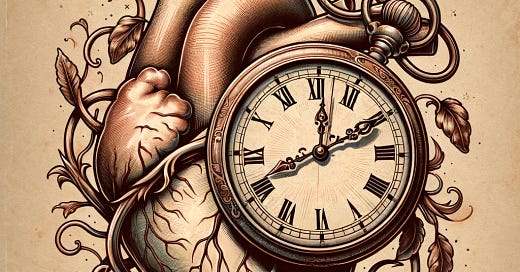All mammals get the same amount of heartbeats, very broadly speaking.
Take humans, for instance. For simplicity’s sake, let’s say your heart beats once a second. On average, this probably isn’t too far off.
Sixty seconds are in a minute, and sixty minutes are in an hour. That’s 3,600 heartbeats per hour, or 86,400 in a 24-hour day. 365 days in a year means 31,536,000 heartbeats per year. After 32 years, you will have produced a little over a billion heartbeats.
Put another way, if you have 32 years left to live, you’ve got a billion heartbeats ahead of you.
Mice and elephants each get roughly a billion heartbeats, and so do most mammals in between.
I wrote a bit about Kleiber’s Law, and the biology that underpins why other mammals also get roughly the same number of heartbeats, even when their lifespan is longer or shorter than average:
Kleiber's Law
A mouse’s heart beats pretty fast, but an elephant’s heart beats at a slow, steady pace. Over their lifespans, the mouse and the elephant get about the same number of heartbeats. It seems as though there is some kind of "biological timekeeping" where lifespan and metabolic rate are intertwined. The faster metabolism in smaller animals leads to a faster "pace of life," with quicker heart rates and shorter lifespans. Conversely, larger animals with their slower metabolism experience a slower pace of life, with lower heart rates but longer lifespans.
Back over to us (humans): we seem to be a notable exception, since our lifespans are just over double the figure I used (32 years; average human life e…
Keep reading with a 7-day free trial
Subscribe to Goatfury Writes to keep reading this post and get 7 days of free access to the full post archives.




